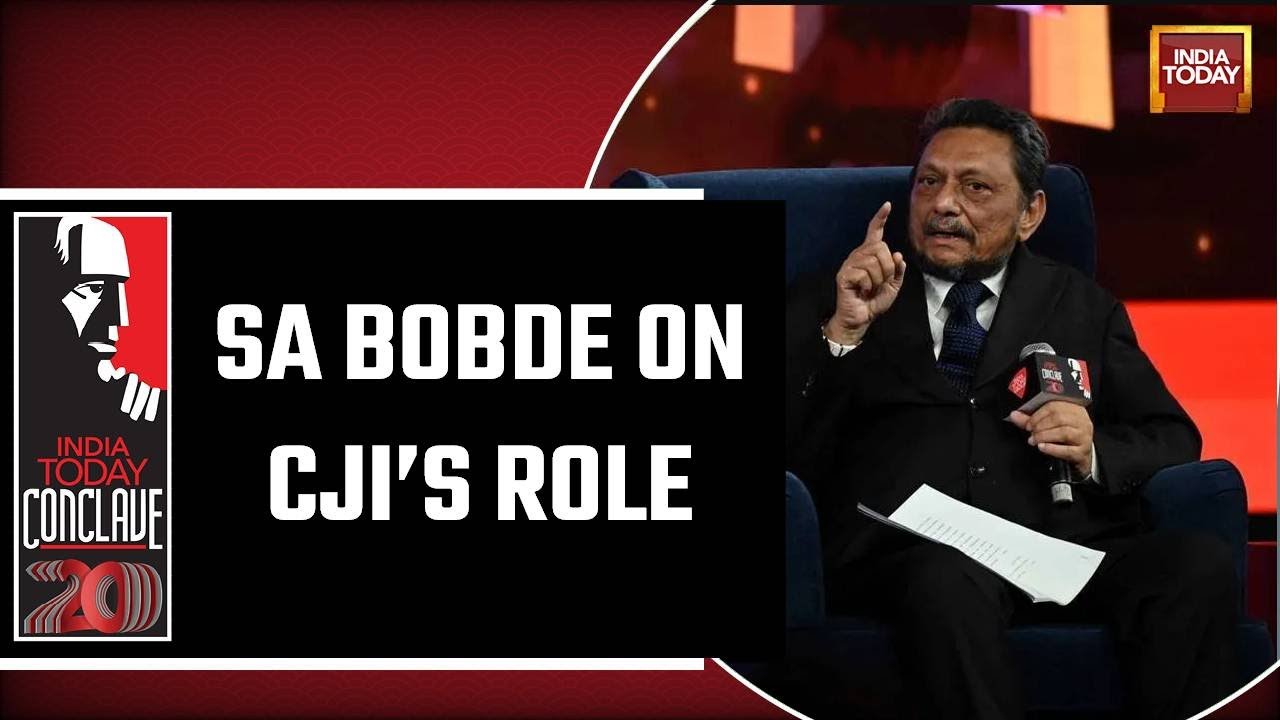'Cji Is Responsible For Anything That Happens In The Court', Says Former Cji Sa Bobde
Unleash Your Creative Genius with MuseMind: Your AI-Powered Content Creation Copilot. Try now! 🚀
Few constitutional positions in India carry as much weight of public expectations and scrutiny as that of the Chief Justice of India. On any given day, the Supreme Court is making headlines in one form or another. In this article, we will delve into the perspectives of three former and current Chief Justices of India to understand their views on the role of the Supreme Court and its Chief Justice.
The Crown of Thorns: The Perceived Pressure and Scrutiny
The Chief Justice's post today is often likened to a crown of thorns, constantly under scrutiny and seemingly under immense pressure. The media plays a significant role in this heightened scrutiny. However, it is not just the media that contributes to the pressure. The Chief Justice of India acknowledges that there is intense competition among courtiers and stakeholders, with everyone vying for a favorable judgment. Yet, the true challenge arises from the often irresponsible comments made by judges, which the Chief Justice and the Supreme Court as a whole have to address. Regardless of the source, the Chief Justice is ultimately held responsible for anything that happens within the court.
While it may appear that I am sympathizing with the Chief Justice in this analogy of thorns, I would like to clarify that the post itself does not inherently carry thorns. Instead, it is the external perceptions and judgments from onlookers that create the metaphorical thorns. The Chief Justice's position is one of significant responsibility and accountability.
Political Wars and Judicial Adjudication
One might argue that many judgments in India today are tangled in political wars. For instance, the Ayodhya judgment, in which the Chief Justice himself was involved, was entangled in the politics that had surrounded the Ayodhya issue for decades. Regardless of the judgment delivered, there was bound to be some political fallout from such a politically charged case.
However, the Chief Justice believes that the label of "political" can be attached to almost anything. From his perspective, the Ayodhya case was not solely a political matter. It revolved around issues such as the birthplace of Lord Ram and had been a contentious topic even before India gained independence. The fact that politicians discuss the case or seek political mileage from it does not make it inherently political for the courts. The Supreme Court's role is to adjudicate the claims brought before it by parties and decide on those claims, detached from any political agenda.
In the face of political cases, such as the Ayodhya case and controversies surrounding defense deals like the Rafael deal, the Chief Justice and the Supreme Court find themselves inevitably entangled in a political battle. However, the Chief Justice emphasizes that their involvement is not due to a political inclination, but rather because these cases eventually make their way to the Supreme Court. Their role is to impartially decide the legal aspects of the case, irrespective of any political ramifications.
The Burden of Decision-Making
While the Chief Justice acknowledges that there may be a sense of anxiety regarding the potential impact of their judgments on the body politics, this anxiety is not related to the politics of the case itself. The responsibility lies in ensuring that justice is served and that the legal aspects of the case are adjudicated effectively. The Chief Justice feels no extra pressure as a result of the political dynamics surrounding a case.
Conclusion
The role of the Chief Justice of India and the Supreme Court is one that carries immense responsibility, expectations, and scrutiny. Although the Chief Justice may be metaphorically adorned with a crown of thorns due to external perceptions, their focus remains on delivering impartial and just decisions. The Chief Justice recognizes the challenges posed by irresponsible comments and the inevitable entanglement in political battles but emphasizes the court's duty to adjudicate claims brought before it. When fulfilling their role, the Chief Justice aims to rise above political discourse and makes decisions based solely on the merits of the case.
[Applause]

Related Recaps
- Hurricane Chris on Getting Charged w/ 2nd-Degree Murder, Almost Passed Out During Arrest (Part 3)
- Russia claims Ukraine tried to hit Kremlin, Kyiv denies it • FRANCE 24 English
- Marvel Studios’ Ant-Man and The Wasp: Quantumania | Streaming May 17 on Disney+
- Prime Minister's Questions (PMQs) - 19 April 2023
- FBI arrests MA Air National Guard member in documents leak